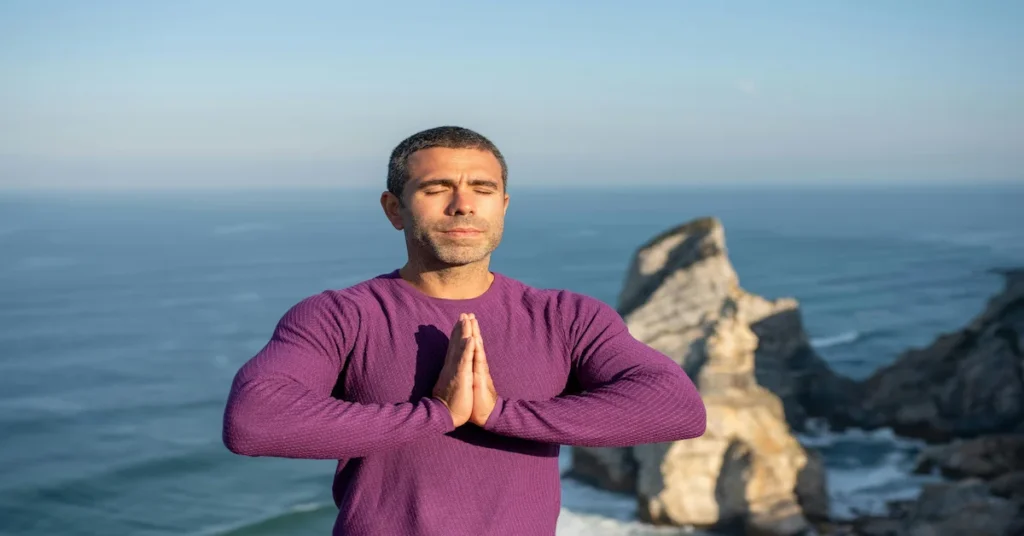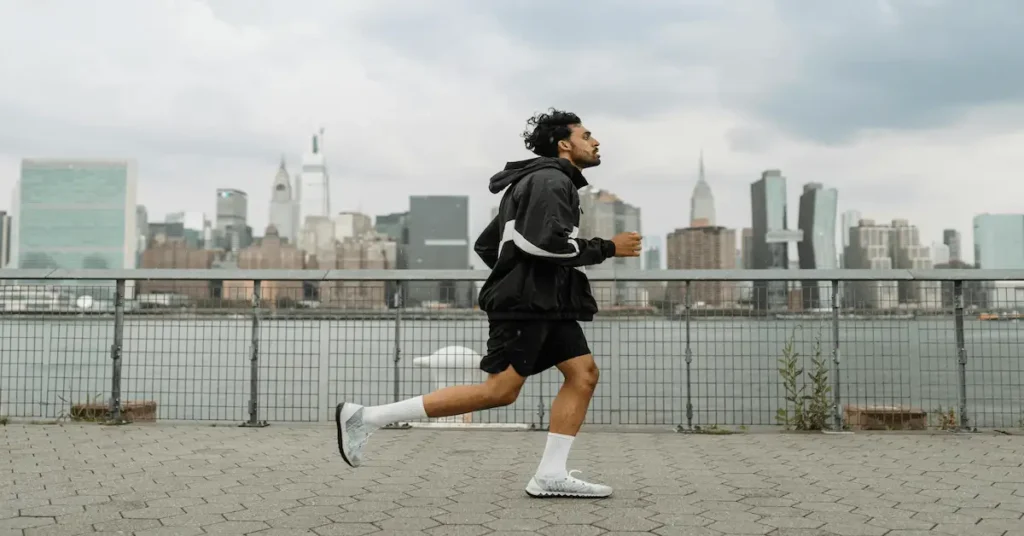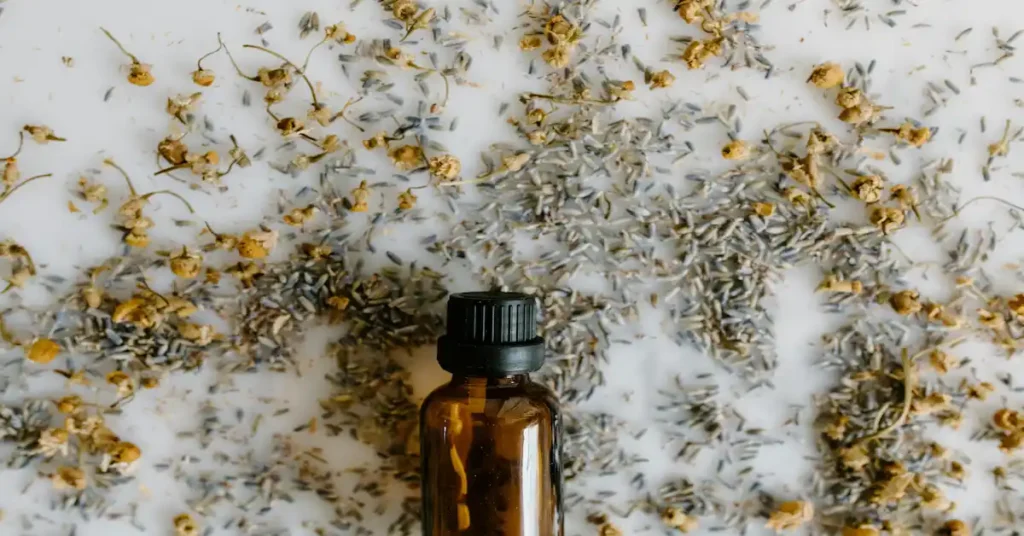Anxiety is one of the most widespread mental health conditions globally, affecting over 280 million people according to the World Health Organization. It can disrupt sleep, lower concentration, impact relationships, and even weaken the immune system. While pharmaceutical medications like SSRIs and benzodiazepines are commonly prescribed, many people seek to manage anxiety through natural, non-addictive methods due to concerns about side effects or dependency.
The encouraging news is that research in the fields of psychology and neuroscience has identified multiple effective natural remedies for anxiety that do not require pills. These techniques can reduce both the physical and mental symptoms of anxiety when practiced consistently. This article explores seven science-backed strategies that can help you regain calm and control naturally.
1. Deep Breathing Techniques for Instant Calm

When a person feels anxious, their body activates the sympathetic nervous system, which prepares them for “fight or flight.” This can cause rapid heart rate, shallow breathing, muscle tension, and panic. Deep breathing works by stimulating the parasympathetic nervous system, which tells the body to relax.
A widely recommended method is Box Breathing, often used by athletes and military personnel:
- Inhale slowly through your nose for 4 seconds
- Hold your breath for 4 seconds
- Exhale gently through your mouth for 4 seconds
- Pause and hold again for 4 seconds
Repeat this cycle for at least five minutes. Clinical studies have shown that slow breathing can reduce cortisol (the stress hormone), lower heart rate, and improve focus. This technique is a fast and reliable way to interrupt anxiety spirals and regain composure in high-stress situations.
For more information, see Harvard Health’s guide on relaxation breathing techniques.
2. Exercise: A Natural Antidepressant and Anxiolytic

Physical activity may be one of the most potent natural anxiety-reducers available. During exercise, your brain releases neurotransmitters like endorphins and serotonin, which help improve mood and regulate stress. Exercise also lowers levels of adrenaline and cortisol, the hormones that spike during anxious moments.
You do not need to engage in intense workouts to experience the benefits. Even 20–30 minutes of moderate physical activity, such as brisk walking, yoga, cycling, or dancing, can dramatically reduce anxiety symptoms. A study published in the Journal of Psychiatric Research found that people who exercised at least three times a week reported 25–30% lower anxiety levels compared to sedentary individuals.
Consistency is key. Aim for at least 150 minutes of moderate aerobic activity per week, as recommended by the World Health Organization.
3. Herbal Remedies and Supplements with Anxiolytic Effects

Plants and herbs have been used for centuries to treat anxiety and emotional imbalances. Modern research now supports the effectiveness of several natural supplements, particularly:
- Ashwagandha: An adaptogenic herb known for lowering cortisol and improving stress resilience. Multiple randomized controlled trials have shown significant reductions in anxiety scores among users.
- Chamomile: Often consumed as a tea, chamomile contains apigenin, a compound that binds to brain receptors and promotes calmness.
- Lemon Balm: A member of the mint family that has shown sedative effects in clinical trials.
- Lavender Oil: Studies show that oral lavender supplements or aromatherapy may ease anxiety without causing sedation or addiction.
Always consult a healthcare professional before adding herbal supplements to your routine, especially if you are on other medications or have pre-existing conditions.
For more clinical insight, read this 2021 review on herbal anxiety treatments.
4. Mindfulness and Meditation for Long-Term Anxiety Control
Mindfulness is the practice of staying present and fully engaged in the current moment. Anxiety often stems from rumination about the past or fear of the future, which mindfulness techniques can help manage by training the brain to remain grounded.
Meditation is one of the most accessible mindfulness tools. Daily sessions as short as 10 minutes can significantly reduce symptoms of anxiety. A meta-analysis published in JAMA Internal Medicine found that mindfulness meditation can reduce anxiety symptoms as effectively as some medications in people with mild to moderate anxiety.
Mindfulness also strengthens the prefrontal cortex, the part of the brain responsible for decision-making and emotional regulation, while calming the amygdala, the brain’s fear center.
Free apps like Insight Timer, Smiling Mind, and UCLA Mindful can help beginners get started with guided practices.
5. Limit Caffeine, Alcohol, and Processed Sugar
Diet plays a larger role in mental health than many people realize. Caffeine, found in coffee, energy drinks, and some teas, stimulates the nervous system and can worsen anxiety symptoms, especially in individuals who are already sensitive or prone to panic attacks. Similarly, alcohol, although initially sedative, disrupts serotonin levels and sleep cycles, often leading to heightened anxiety later.
Another major culprit is refined sugar, which causes blood sugar spikes and crashes that affect mood and energy. A diet high in sugar has been linked to increased inflammation and hormonal imbalances—both contributors to anxiety.
Switch to:
- Decaffeinated teas like peppermint or rooibos
- Foods with complex carbs (brown rice, quinoa, oats)
- Lean proteins, vegetables, and omega-3 rich sources like flaxseed and walnuts
These changes can help regulate your mood and energy throughout the day, reducing the likelihood of anxiety surges.
6. Create a Healthy and Consistent Sleep Routine
Sleep and anxiety have a two-way relationship: anxiety disrupts sleep, and poor sleep increases anxiety. Restful sleep is crucial for memory consolidation, hormonal balance, and emotional regulation.
To improve your sleep hygiene:
- Stick to a regular bedtime and wake time, even on weekends
- Avoid screens and bright lights at least 1 hour before sleep
- Make your bedroom cool, dark, and quiet
- Avoid heavy meals or alcohol late in the evening
If sleep troubles persist, consider natural supplements like magnesium glycinate or melatonin, but only under medical supervision.
According to the Sleep Foundation, individuals who get less than six hours of sleep per night are more likely to report anxiety symptoms compared to those who get 7–9 hours.
7. Connect with Nature and Build a Support System
Human connection and exposure to natural environments both play powerful roles in emotional healing. Spending time outdoors can reduce cortisol levels and improve mood. Even a 20-minute walk in a park or a short hike through greenery can provide measurable reductions in anxiety symptoms.
Social support is equally vital. Isolation tends to worsen anxious thinking, while simply talking to a trusted friend or family member can provide relief and perspective. Joining local wellness groups or support circles can also create a sense of belonging, which is essential for mental stability.
Consider starting a gratitude journal or engaging in creative expression like drawing, painting, or writing, which has been shown to decrease anxious thoughts and promote mental clarity.
Final Thoughts
Anxiety is a complex but manageable condition. While medications can be lifesaving in some cases, there are numerous natural and effective strategies that can help reduce anxiety without pills. By adopting a holistic approach incorporating breathwork, movement, nutrition, herbal remedies, sleep hygiene, and emotional support you can empower your mind and body to self-regulate.
The key is consistency. Natural remedies often take time and regular practice to show their full benefits. If your anxiety persists or becomes overwhelming, it’s essential to consult a licensed therapist or mental health professional. You are not alone, and support is available through multiple channels.
For further guidance and evidence-based resources, visit Mind.org.uk or speak with your healthcare provider about integrative mental health solutions.
Frequently Asked Questions (FAQs)
Q1: What are the most effective natural methods to reduce anxiety without using pills?
A1: The most effective natural methods include a combination of deep breathing exercises, mindfulness meditation, regular physical activity, herbal supplements such as ashwagandha and chamomile, limiting stimulants like caffeine and sugar, maintaining healthy sleep patterns, and spending more time in nature. These strategies help regulate the nervous system, reduce stress hormones, and promote emotional stability. When practiced consistently, they can significantly lower anxiety levels without the need for pharmaceutical intervention.
Q2: Can anxiety be completely cured naturally, or just managed?
A2: Anxiety may not always be “cured,” especially in chronic or genetic cases, but it can often be successfully managed and reduced through natural methods. Many people experience long-term improvement in their mental health by making holistic lifestyle changes, practicing emotional regulation techniques, and addressing root causes like sleep deprivation or poor diet. While severe anxiety may require professional treatment, mild to moderate anxiety is often manageable without medication.
Q3: How long does it take for natural remedies to start reducing anxiety?
A3: The timeline for natural remedies to work varies by method and individual. Breathing exercises and mindfulness meditation can provide relief within minutes, especially during acute anxiety. Herbal supplements such as ashwagandha or chamomile typically take 2–4 weeks of regular use to show measurable results. Exercise and dietary improvements may take a few weeks to a couple of months to fully impact stress hormone levels and mood. Patience and consistency are essential for success.
Q4: Are breathing exercises actually effective for anxiety relief?
A4: Yes, multiple clinical studies confirm that deep and controlled breathing techniques are among the quickest ways to calm the nervous system. Techniques like the 4-7-8 method, box breathing, or diaphragmatic breathing reduce cortisol levels, slow heart rate, and promote oxygen balance in the brain. These exercises work by activating the parasympathetic nervous system, which helps bring the body back to a state of rest and recovery.
Q5: What are the best herbal supplements for reducing anxiety naturally?
A5: Some of the most widely studied and effective herbs for natural anxiety relief include:
- Ashwagandha – an adaptogen that reduces cortisol and balances stress response
- Chamomile – promotes calmness and better sleep
- Lemon balm – calms the nervous system and reduces restlessness
- Lavender – used in aromatherapy and capsules for calming effects
It’s important to speak with a healthcare professional before starting any herbal regimen, especially if you are pregnant, nursing, or taking other medications.
Q6: How does regular physical exercise help in managing anxiety without medication?
A6: Exercise is one of the most powerful natural anti-anxiety tools. When you exercise, your body releases endorphins and serotonin, chemicals that improve mood and reduce the perception of stress. Regular movement also helps reduce cortisol, improves sleep quality, and boosts self-esteem. Low-impact activities like walking, swimming, yoga, or tai chi can be particularly effective and sustainable for long-term anxiety management.
Q7: Can improving my diet actually help reduce anxiety symptoms?
A7: Yes, there is a strong connection between diet and mental health. Diets high in processed foods, refined sugar, and caffeine can cause blood sugar spikes and crashes that worsen mood swings and anxiety. On the other hand, a nutrient-dense diet rich in omega-3 fatty acids, complex carbohydrates, magnesium, and B-vitamins helps support a stable mood. Foods like leafy greens, salmon, nuts, whole grains, and fermented foods promote gut-brain health, which plays a major role in regulating emotions.
Q8: Is poor sleep a cause or a result of anxiety?
A8: It’s both. Anxiety can disrupt sleep by causing racing thoughts and restlessness, while lack of quality sleep can intensify anxiety by impairing brain function and emotional regulation. Establishing a consistent sleep routine, limiting screen time before bed, avoiding heavy meals late in the evening, and creating a relaxing sleep environment can dramatically improve sleep quality and in turn, reduce anxiety levels.
Q9: How does mindfulness meditation help with anxiety reduction over time?
A9: Mindfulness meditation teaches your brain to remain present, reducing worry about the future or regrets about the past two common drivers of anxiety. It has been shown in studies to decrease activity in the amygdala the brain’s fear center) while increasing thickness in the prefrontal cortex, which regulates emotion. Even 10 to 15 minutes of mindfulness meditation daily can improve focus, reduce negative thinking, and support emotional resilience over the long term.
Q10: When should I seek professional help instead of relying on natural remedies?
A10: If your anxiety symptoms are persistent, worsening, or interfering with your ability to function in daily life, it is important to consult a mental health professional. While natural remedies are effective for many, they may not be enough for severe anxiety, panic disorders, or anxiety linked to trauma. A licensed therapist or doctor can guide you toward the right treatment, which may include therapy, lifestyle support, or medication in some cases.